Unlike so many others, I approach my particular take on film knowing full well that I don’t have all of the answers. Generally speaking, I don’t get into meaty cinematic issues like frame construction, plot mechanics, technical wizardry, and critical subtext. Yes, yes, and yes: I’m well aware that all of those things might be there, and I’m equally aware that they – like any other component to any story – can add-up as factors as to whether or not one big event makes perfect sense, captivates one’s interest, and enjoys the experience. I guess it’s safe to suggest that I’ve always been a bit more of a ‘feeling’ kind of guy – did the feature tickle my fancy, why or why not did or didn’t it tickle my fancy, what did all of the bells and whistles mean and why did or didn’t they work, etc. – along with recognizing just how well its players fulfilled the tasks a script put in front of them. This isn’t to say that I don’t appreciate all of the scholarly underpinnings that go into a flick; rather, I really just don’t want them to get in the way of my having a ‘good time’ with all of it. So sue me: I’m a simple man, and I have simple needs.
Furthermore, I was already on record in a few spots on SciFiHistory.Net as saying that I wasn’t going to even watch Rebel Moon: Part 1 – A Child Of Fire. No, no, and categorically no: that wasn’t any qualitative judgment issued in advance on the wide, wide works of Zack Snyder – a storyteller whose pictures I often admire but may not always enjoy – but it was a confession based on the fact that both he and Netflix have already announced that a longer cut was in the offing. I figured, “Why watch the short version when the long version is likely the intended incarnation of this adventure?” (Sometimes, even I can see a ‘cash grab’ for what it is; and with this being the first film in a new Intellectual Property then why not put it all out there for effect?) But – as Fate would have it – I ended up having an opening on my dance card, as they say, and I gave it a spin.
The short: I’m glad I did.
The longer: Well … you’ll have to continue reading.
From the film’s IMDB.com page citation:
“When a peaceful settlement on the edge of a distant moon finds itself threatened by the armies of a tyrannical ruling force, a mysterious stranger living among its villagers becomes their best hope for survival.”
We here in the West have long been fascinated with Akira Kurosawa’s Seven Samurai (1954).
This award-winning and much revered Action/Drama has long been a contender for being amongst the greatest cinematic epics ever delivered, and – decades after its launch – it continues to be a source of inspiration for those wanting to get into the film business if not even just the niche of storytelling. Ours is a cultural that loves to traffic in passing down myths from one generation to the next, and Samurai is the kind of vision that resonates no matter who you are … no matter your upbringing or social stature … and no matter what you believe in this life or the next. At its core, it’s little more than a stand against tyranny – villagers hire some fallen heroes to save them from their oppressors only to learn that they’ll have to join in the fight – but such fundamentals never go out of style, no matter how lavish the civilization.
For those who may’ve missed it, the Kurosawa film enjoyed its first Americanized remake in 1960 when director John Sturges adapted it for more Western sensibilities. Like the original, the story proved to be a huge hit with audiences, so much so that the saga enjoyed three sequels – Return Of The Seven (1966), Guns Of The Magnificent Seven (1969), and The Magnificent Seven Ride! (1972) – though none of those entries enjoyed the notoriety or the box office of the predecessor. The property even inspired a short-lived television series along with a 2016 remake (with Denzel Washington and Chris Pratt stepping into key roles), so clearly the popularity of the Japanese original is not in question.
Furthermore, Samurai served as the chief inspiration to screenwriter John Sayles when, in 1980, he joined forces with genre master Roger Corman to deliver Battle Beyond The Stars to theaters. In the age of Star Wars knock-offs – itself a franchise that George Lucas admits to being inspired, in part, by samurai films – why not go back to that catalogue for more? Farmers on the distant planet of Akir (directly named after Akira himself) are being menaced by some evil space lord, so young Shad (played by Richard Thomas) takes to the stars in search of warriors he can bring back to defend his homeworld from persecution. Beat for beat, Battle matches Samurai as if the two pictures were crafted in sync, and yet the SciFi/Fantasy remains a largely forgotten flick in the annals of B-Movie history.
Well …
Right out of the gate, I’m gonna identify Rebel Moon’s greatest weakness – so far as I see things – as I firmly believe it ties together every single technical or performance issue I have with the first film, so much so that I’m anticipating it’ll probably tie in with the same deficiencies that’ll come from the sequel set to stream on the Netflix platform this April, 2024. I’ve had this central complaint with Snyder’s work before, and I think – unless he can find a means with which to corral his creative impulses – it’ll stick with him through thick and thin, highs and lows, and good and bad so long as he’s in the business. In fact, it practically defines everything he’s done since his feature film debut with 2004’s Dawn Of The Dead, a project I think is groundbreaking even to this day.
Here it is: narrative bloat.
I know, I know, I know: “that’s easy,” you say. “I can’t believe you built me up for so simple an argument!”
Well, the problem here is that it’s true.
Rebel Moon – at well over two hours with a promised well over three hours alternate cut coming soon – both covers and doesn’t cover too much ground in its run-time. Like Seven Samurai, the audience is introduced to over a half-dozen central characters; and come the big finish I challenge any in this audience to tell me so much as any one, two, or three character’s names. Each and every one of these heroes (or villains or anti-heroes or what have you) are defined solely by their actions and never by their interactions with one another. The audience doesn’t get to know them in any substantive way other than what they can do with their fists or their preferred weapon of chance; and – as such – we just don’t care about them.
Instead, we care about their circumstances. We care about the battle they’re in – the momentary distraction from living their separate lives the way they have for so long before they’re introduced here. We see who they are but are never inspired to see anything more to them … not even who they might become once they join forces on this mission of mercy. Because we spend no time exploring their individual souls, we can attach no meaning to them; when a few of them fall as necessary in the pursuit of righting wrongs, we don’t mourn them … because we were never given the opportunity to care for them in the first place.
When you start any project with exhaustive plot details, then at some point it becomes necessary to consider how much is too much. How little is too little? When can you achieve the perfect balance in delivering both characters and action? Snyder – rather famously – spends more screen time on slow-motion sequences; and, far too often, those resonate as though they’re meant to be cinematic while not necessarily advancing any of the script’s central ideas. When the ideas are paper thin – i.e. war = bad, farming = good, etc. – then such lofty vignettes become repetitive very quickly; and they come across as being rather obvious attempts to capture some violent exchange with an eye for beauty. Whereas the director struck the proper balance between nobility and violence in 300 (2006), the story of Spartan soldiers making their last stand for freedom, Snyder’s struggles don’t bear the same fruit here. Instead, his technique serves to remind viewers that they’re watching a film, slowing the pace of an already simple endeavor so much so that you’re not watching paint dry and, instead, decided upon which color dries more slowly.
Alas, when characters don’t quite align with the mythic intentions of the storyteller, the disconnect isn’t easy to bridge; and Rebel Moon suffers mostly from the fact that its various ideas never get into any satisfying concoction. Instead, it’s pretty. It’s pleasant to look at, though curious out-of-focus in a great handful of scenes. It’s mindless cotton candy in lieu of the preferred meat-and-potatoes of Seven Samurai – clearly its inspiration – and that cheapens the whole affair. While it’s occasionally fun, fast, and frenetic, it just never delivers the ‘win at all costs’ sentiments laid out in its rather artistic set-up. Think of Star Wars as done for the ‘The Fast And The Furious’ crowd, and you’d probably not hit that far off the mark.
However …
Sometimes it’s best to think of a film as just a film. Maybe it isn’t really meant to achieve the level of greatness that the source material somehow found, but it can still exist or co-exist in this same reality much like there are two sides to every coin. If I imagine Kurosawa on one side, then is it possible to see Snyder’s Rebel Moon on the opposite? Sure, it has many of the same ingredients, and it periodically hits some of the same chords, so I suppose that’s a legitimate supposition. Both travel the same road, and I’m suspecting both might reach similar destinations.
Where I disagree with a great deal of Rebel’s criticism is that rather than shorten the whole affair what I feel might’ve been the better venue was a limited-series format.
Perhaps it’s best to define it this way: imagine watching the very first Star Wars and not really giving a damn about Luke Skywalker, his circumstances, or the mission he inevitably dedicates himself to? The hero’s mission doesn’t really mean anything unless the audience is encouraged to care about him or her, and that’s the issue I have with the lead Kora (Sofia Boutella). Instead of being drawn into the magic and mystery of her predicament, all we’re expected to do is (A) feel sorry for her, (B) feel anger for her oppressors, and (C) forget all of the obviously bad things she may’ve done whilst working for them. That isn’t exactly easy to reconcile, but we’re encouraged to do as much here so that she can receive the redemption Snyder’s script has her seeking. I don’t know about you folks, but I don’t always just look the other way when I’m told to do it, especially when it comes for one character’s propensity for violence. Kora remains a force to be reckoned with, and I’ve really been given little reason to think she’s truly ‘on our side’ at this point.
As Rebel Moon stands in its current packaging, it’s … well … it’s occasionally good and occasionally bad. It’s horrifically uneven at times, but it still manages to find small moments of balance, wherein character and context are handled quite nicely. No, it doesn’t make perfect sense … but going back to what all of those who complained about my opinions of films? It’s only a movie, after all, so why not just pop some corn and get on with it?
Recommended.
Sometimes a film is just a film, meaning that it’s likely going to have as many issues and blemishes as does the next one; but – for reasons that may not always make perfect sense – we’re existentially hell bent on tearing it apart just because. That said, Rebel Moon functions on the same creative level as does 1980’s vastly more affordable – and occasionally more coherent – Battle Beyond The Stars in its quest to simply retell a classic samurai tale in a Science Fiction and Fantasy package. Those seeking more meaning? Well, as they say, “it’s only a film,” after all, and maybe – much like George Lucas intended with his original Star Wars – it was only meant to entertain? But what do I know? I’m just a Regular Joe.
In the interests of fairness, I’m pleased to disclose that I’m beholden to no one for my review of Rebel Moon: Part One – A Child Of Fire as I viewed this via my very own Netflix subscription.
-- EZ

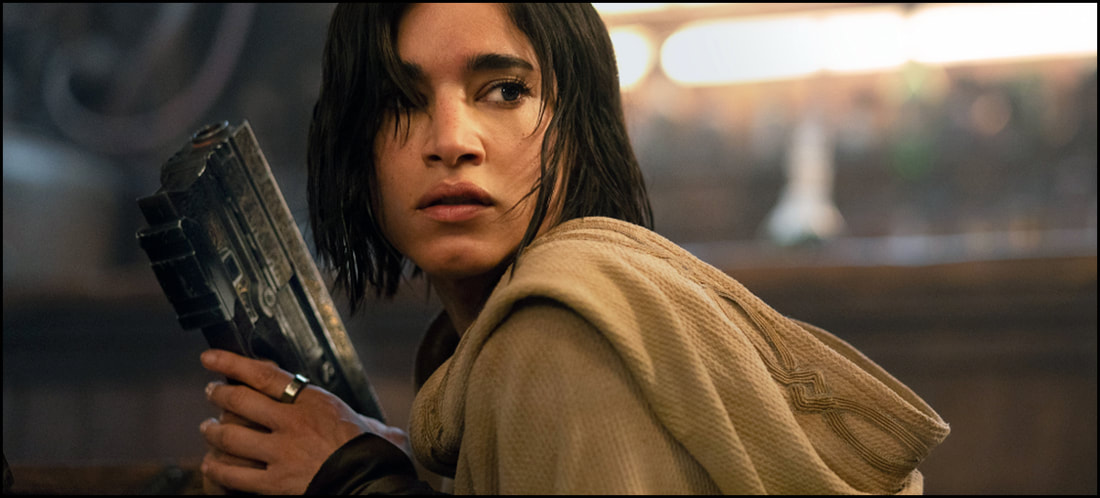
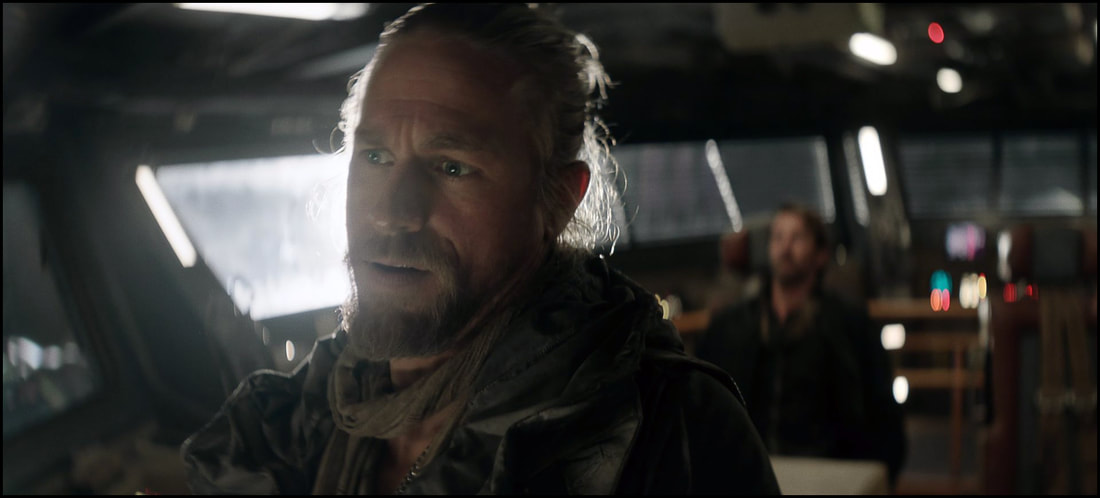
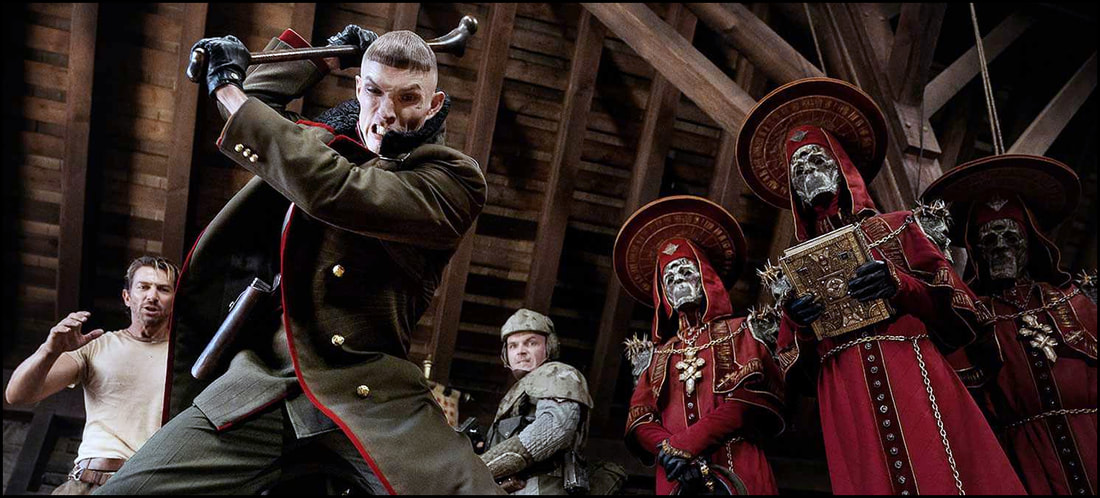
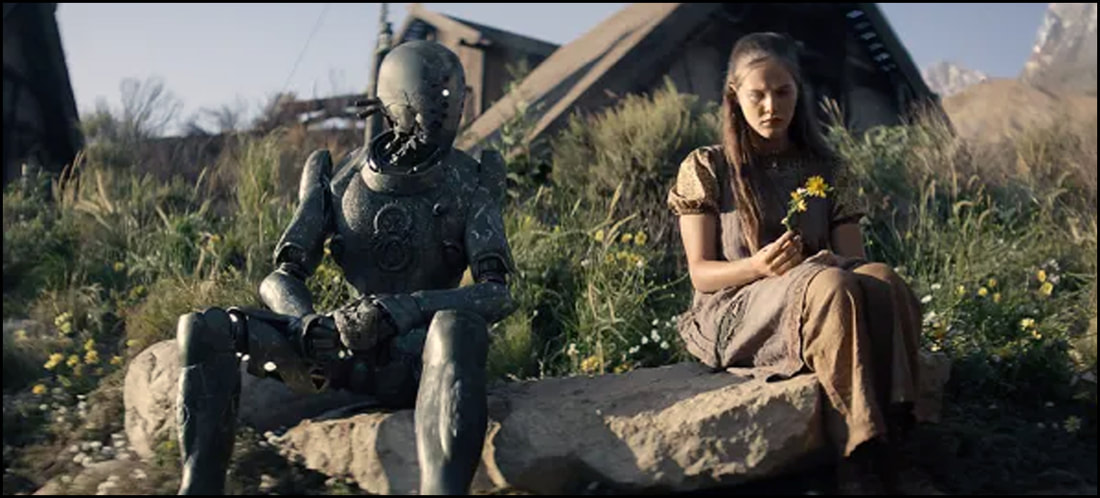
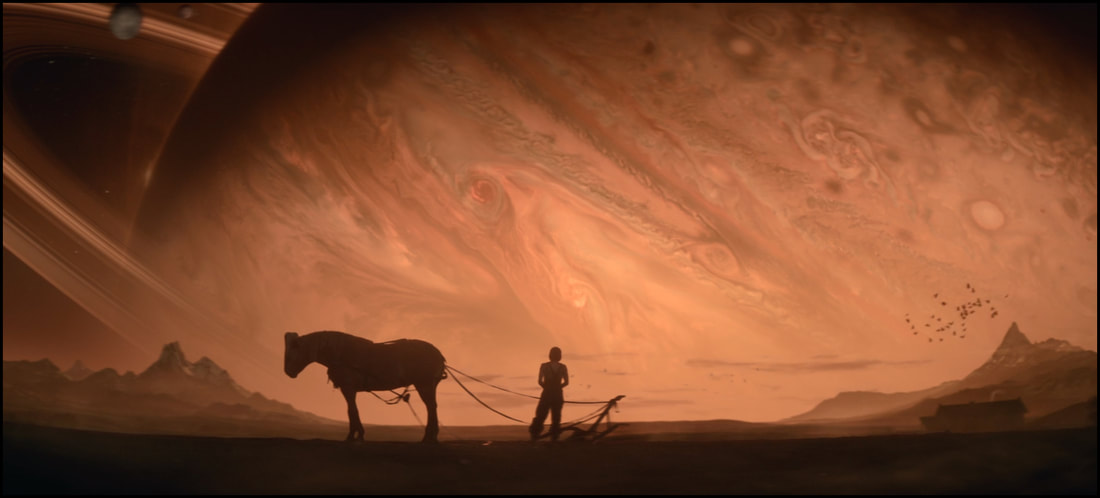
 RSS Feed
RSS Feed